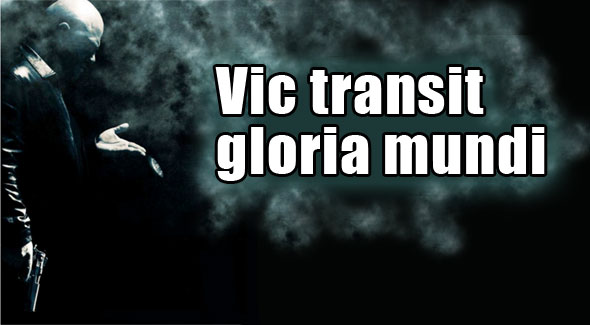In a special supplement to the Overthinking It Podcast, Matthew Wrather, Matthew Belinkie, and Peter Fenzel consider the last episode of The Shield.
WARNING: Contains spoilers.

In a special supplement to the Overthinking It Podcast, Matthew Wrather, Matthew Belinkie, and Peter Fenzel consider the last episode of The Shield.
WARNING: Contains spoilers.
Just saw the final episode last night. So, of course, I had to immediately download your reactions.
My thoughts:
(1) I agree with you about the masterful inevitability of every thread wrapped up in the final episode.
(2) … particularly the final fate of Vic Mackey. Seeing Vic get away with three years worth of repugnant crimes – him driving off into the sunset, top down on his convertible – would have been brutal but not particularly artful. Seeing Vic die – a gangsta coming back to cap him, taking a bullet in a raid, or getting shivved in prison – would have been shocking but not necessarily satisfying.
However, the Kafkaesque office hell that he ends up in is PERFECT. Despite what he’s said, Vic has never been about getting criminals off the streets, or keeping his family safe, or standing by his friends. Vic Mackey is a fiend for action. He has to be the Alpha Male in any situation he lands in. So the ultimate punishment is for him to be deprived of any action, any hustle, any chance to use his connections – to become a forgotten cipher.
And I almost feel sorry for him. Think about the most useless, dehumanizing office job you’ve ever scraped through to make ends meet – but without any friends to go drinking with afterward, and where if you quit you go to jail for three consecutive lifetimes.
(3) I think Andre Benjamin was playing the same character in both the S3 and S7 episodes. His character in S3 got in trouble for mild but persistent vigilantism. Danny and Julian got called in when he was videotaping prostitutes on the block outside his comic book store. Then they had to arrest him when he was spraying them with water (“hose for the ho’s!”).
So he’s demonstrated a tendency toward outside-the-box social justice in the past. It’s not unreasonable that he’d be a persistent, charismatic third-party mayoral candidate a year later.
That being said, I agree that his inclusion felt a little shoehorned. Introducing him one or two episodes earlier would have made him feel more a part of the world. And he seems to clearly be the authorial voice, commenting on the system in which the characters live. That being said, I’m 90% sympathetic to the points that Dre/Ryan were making, yet I thought his speeches were totally unconvincing. A lot of vague platitudes – nothing really punchy or insightful.
(3) Mara’s effect on Shane: … true as far as it goes, but I don’t see her as completely ruinous. Remember that Shane did a number on her life as well – they got married after he knocked her up, remember? That being said, she only had one character note – shrewish – for the first few seasons and only became sympathetic recently.
(4) Ronnie! I was almost weeping in frustration when Ronnie got dragged away. Ronnie getting outgunned or outsmarted would have been bad enough, but he gets tricked into sitting on his hands until the cops just walk up and take him. He was always the “smart” member of the Strike Team (second to Vic, naturally) – you get the impression that, if he’d decided to run, he would have made it. He wasn’t helpless – he completely dropped his guard.
And Vic’s apology seems particularly feeble, given that (by that point) we all know Corinne was never in trouble. So from Ronnie’s POV, it must look like Vic fucked Ronnie over out of sheer apathy.
(Of note – Ronnie’s consistently been the Strike Team member affected by shocking, lingering injury. The stove-burner scarring in S2, getting banged on the head by the crucifix in S5, getting bit by the dog in S7, etc. He was consistently the guy who stumbled away from a raid clutching at some serious but non-critical wound. Was his arrest the culmination of that trend – Ronnie Gardocki, victim of circumstance?)
(5) I like how the series ended with the 17-year-old serial killer unresolved. The story ended on the perfect note – Claudette talking about how she’s spent 31 years interviewing scumbags like him, charging him, etc. Settling in for the investigation and the trial. Because that’s really the only uplifting part of The Shield. The Shield’s not about scoring the big win; it’s about fighting the good fight. Claudette’s willingness to back Dutch up and take on this fairly weak case (the kid maybe set up the first guy he shot, and he maybe killed his mom) is the perfect note to end on.
(6) I agree entirely re: this series finale being better than The Wire’s.